News
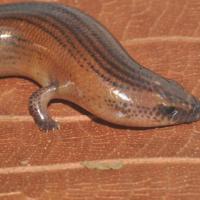
There are species of lizards that have long, snakelike bodies, and limbs so tiny even scientists have wondered about their purpose. Understanding how these hybrid-looking lizards move could provide insight into why an evolutionary transition from…
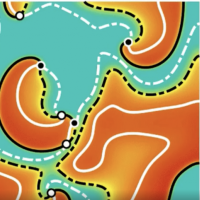
Beam me up, Scotty! Researchers from the Georgia Institute of Technology offer a new method to disrupt spiral waves that uses less energy and that may be less painful than traditional defibrillation.
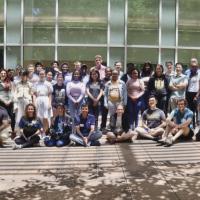
Since 2017, the annual Quantitative Biosciences Hands-On Modeling Workshop has introduced students and faculty of all skill levels and backgrounds to the use of computational modeling in studying biological systems. This summer, attendees and…

Congratulations to QBioS doctoral student, Cassie Shriver, who was awarded a Herbert P. Haley Fellowship for the 2022-2023 Academic Year.

Congratulations to QBioS doctoral student, Tucker Lancaster, who was awarded a 2022 Graduate Research Fellowship from the National Science Foundation.

Mark E. Hay, Regents' Professor and Teasley Chair in Environmental Biology in the School of Biological Sciences, has been elected a member of both the National Academy of Sciences, as well as the American Academy of Arts & Sciences.
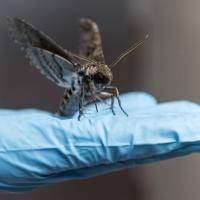
Georgia Tech has received two Department of Defense (DoD) 2022 Multidisciplinary University Research Initiative (MURI) awards totaling almost $14 million.

Congratulations to Pedro Marquez Zacarias.
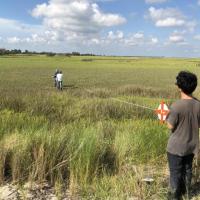
A new study points to possible help for restoring marine ecosystems — and provides more data on the role microbes play in marsh plant health and productivity.

Because humans and animals breathe and metabolize oxygen, they generate a variety of reactive oxygen species (ROS), or cell-damaging oxidants, as byproducts. Our bodies usually make enough antioxidants to counter that damage, but when that…
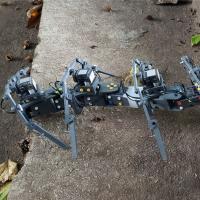

Congratulations to Hannah Choi, who was selected for a 2022 Sloan Research Fellowship in Neuroscience!

Researchers demonstrate that new physical theories provide precise predictions of the deformations of certain structures, revealing that a flexible mechanical structure is governed by some of the same math as electromagnetic waves and even black…

Congratulations to Athulya Ram who was recognized for diplomacy, interpersonal, and communication skills.

Congratulations to Rozenn Pineau, who was awarded this funding from the Society for the Study of Evolution

Collectively responsible for roughly half of global carbon fixation, diverse groups of microbes coexist while relying on limited nutrients even as some microbes depend on energy from the sun to grow via photosynthesis. Precisely because microbes…

The same forces that create circular eddies of water in Earth's oceans are also producing giant atmospheric systems of vortices along Jupiter's poles, according to new research from an international team of scientists that includes Annalisa…
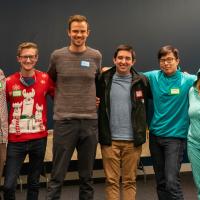
QBioS students were recognized for outstanding publications, as well as for service to the QBioS community.
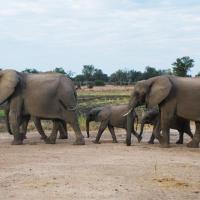
In new research with the National Science Foundation and the National Environment Research Council, Jenny McGuire will study the fossil record in Africa to inform conservation biology decisions and forecast how humans and climate affect wildlife…
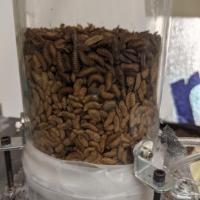
Black soldier fly larvae devour food waste and other organic matter and are made of 60% protein, making them an attractive sustainable food source in agriculture. But increasingly, larvae are dying before they reach livestock facilities as feed.…
